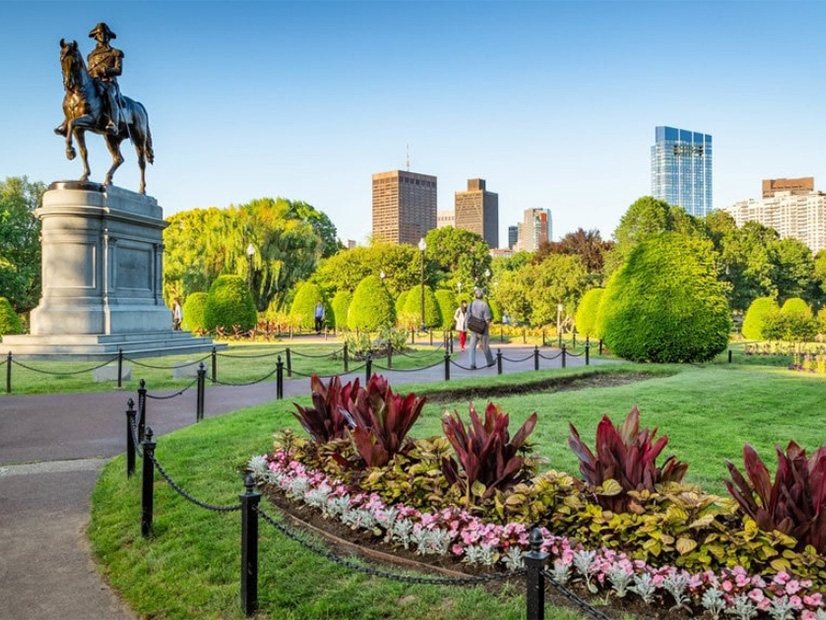
The Massachusetts Commission on Clean Heat is on an “aggressive” timeline to produce a preliminary recommendation for capping greenhouse gas emissions from heating fuels, according to a top state environmental official.
As part of its mandate, the commission must quickly identify policies to inform the still-undetermined building sector emissions sublimit in the state’s forthcoming 2025/2030 Clean Energy and Climate Plan (CECP), Judy Chang, undersecretary of Energy and Climate Solutions at the Executive Office of Energy and Environmental Affairs (EEA), said during a commission public meeting Tuesday.
Massachusetts’ 2021 climate law calls for EEA to establish emissions limits and sectoral sublimits by July 1 along with a plan to achieve the limits. Over the next month, Chang said, the commission will identify policies, programs, initiatives and incentives that would achieve a building sector sublimit and an economy-wide emission-reduction target of 50% below 1990 levels by 2030.
After the commission makes its preliminary policy recommendations, it will refine them into a final report for Gov. Charlie Baker in November.
The 22-member commission has held four meetings since its launch in mid-January and is now “deliberating on some of the suggestions that they might have and exchanging ideas with each other,” Chang said.
Commission meetings, however, are closed to the public. EEA is conducting stakeholder engagement on the commission’s work through three public information sessions.
“We want public input, but I also wanted the commission members to have … the flexibility and the freedom to debate, and it’s through that process that we get the most productive and efficient outcome,” Chang said.
EEA will share information on the commission’s work during a public meeting on March 24. Another public meeting is scheduled for April 14 to give stakeholders a combined update on the commission and the 2025/2030 CECP.
Informing the CECP
EEA Secretary Kathleen Theoharides released an interim 2030 CECP in December 2020 as an update to the state’s existing climate plan at the time. The statutory requirements for the interim update changed in late March 2021, when Gov. Baker signed the state’s next-generation climate policy into law.
Under the law, a 2025/2030 CECP must be completed this summer with statewide limits and at least six sectoral sublimits that are accompanied by plans to achieve each limit. Another update with 2050 sublimits and related plans is due next January.
The clean heat commission’s work on the building sector is one of many public processes underway in Massachusetts to support development of the CECP.
As they relate to heating fuels, those public processes are giving “conflicting signals,” Martyn Roetter, a director at the Neighborhood Association of the Back Bay in Boston, said in comments to EEA during the public meeting Tuesday. He asked the commission to consider how the various initiatives and proposals will provide “consistent and coherent” guidance on fossil fuels.
At the city level, Roetter said, Boston has enacted a stringent emissions ordinance for large buildings. The state, on the other hand, has released a draft net-zero buildings code for municipalities to adopt that “includes the option in new construction to use fossil fuels,” he said. (See Mass. Legislators Call for Fossil Fuel Ban in Net-zero Building Code.)
In that context, he added, Massachusetts Attorney General Maura Healey determined in 2020 that towns are bound by state law to allow new fossil-fuel hookups.
And new recommendations from the state’s gas utilities under the Department of Public Utilities’ investigation of the role of those utilities in decarbonization “sets the stage for the indefinite, continued use of large, extensive networks of pipelines,” he said.
National Grid (NYSE:NGG), Eversource Energy (NYSE:ES), Liberty Utilities and Unitil (NYSE:UTL) released initial proposals in mid-February for their long-term climate plans in that docket (20-80). The utilities’ proposals, while not identical, all include recommendations for hybrid heat pump/natural gas installations and decarbonization of gas networks over time through blending with renewable natural gas or hydrogen.


